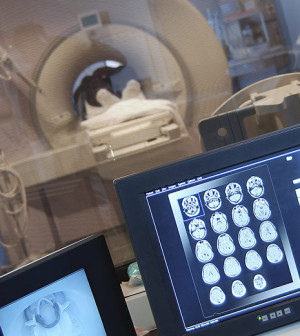- Could Your Grocery Store Meat Be Causing Recurring UTIs?
- Are You Making This Expensive Thermostat Error This Winter?
- Recognizing the Signs of Hypothyroidism
- 10 Strategies to Overcome Insomnia
- Could Artificial Sweeteners Be Aging the Brain Faster?
- Techniques for Soothing Your Nervous System
- Does the Water in Your House Smell Funny? Here’s Why
- Can a Daily Dose of Apple Cider Vinegar Actually Aid Weight Loss?
- 6 Health Beverages That Can Actually Spike Your Blood Sugar
- Treatment Options for Social Anxiety Disorder
Press Releases Blamed for Exaggerated Health News


Exaggerated news reports about health research often can be traced back to press releases issued by universities, a new British study suggests.
Improving the accuracy of these news releases could greatly reduce the amount of misleading health news, the researchers said in their Dec. 9 report in the BMJ.
The blame “lies mainly with the increasing culture of university competition and self-promotion, interacting with the increasing pressures on journalists to do more with less time,” Petroc Sumner and Chris Chambers, both of Cardiff University in Wales, wrote in a journal news release.
They analyzed 462 news releases on health-related research issued by 20 leading universities in the United Kingdom in 2011 and compared them to the studies they described and to 668 national news stories about the studies.
Compared to the actual studies, 40 percent of the releases contained exaggerated advice, one-third contained exaggerated causal claims, and 36 percent contained exaggerated inferences about how animal research applied to people.
If press releases exaggerated the research, it was more likely that news stories would do the same — 58 percent for advice, 81 percent for causal claims, and 86 percent for inference to humans, the researchers found. When press releases did not exaggerate, rates of exaggeration in news stories were 17 percent, 18 percent and 10 percent, respectively.
However, hyperbole in press releases did not increase the chances that the research would make the news.
Journalists and media outlets are often blamed for stories being sensationalized or alarmist, but these findings show that these faults “are already present in the text of the press releases produced by academics and their establishments,” the researchers said in a journal news release.
Reducing exaggeration in press releases could improve the accuracy of health news, with potential benefits for public health, the researchers concluded.
One approach would be to make academic researchers accountable for news releases about their work, Ben Goldacre, research fellow at the London School of Hygiene and Tropical Medicine, wrote in an accompanying journal editorial.
More information
The U.S. National Library of Medicine has more about evaluating health information.
Source: HealthDay
Copyright © 2026 HealthDay. All rights reserved.










